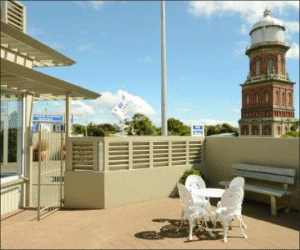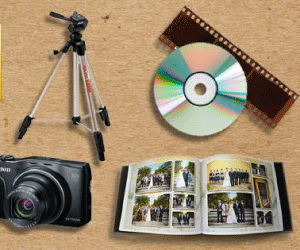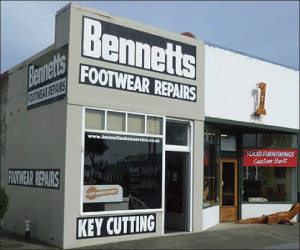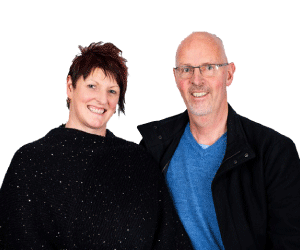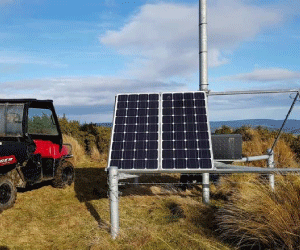Covid-19 recovery: Northern Southland businesses digging in for the long haul
Marjorie Cook
18 October 2020, 4:43 PM
 Where to from here? PHOTO: Marjorie Cook
Where to from here? PHOTO: Marjorie CookWhat’s not to love about a road trip along State Highway 6, one of the busiest tourist routes in the country? Reporter Marjorie Cook went looking for signs of post Covid-19 survival and revival along the now quiet scenic route.
If I could choose an overall road trip song for my journey through Northern Southland during the second week of the spring school holidays, it would be “The Road Is Long With Many A Winding Turn” by The Hollies.
For me, the lyrics sum up the stoic determination and community focus displayed by business owners as they reflected on 2020 - surely Southland’s annus horribilis of the century, thus far.
Advertisement
Advertise on the Southland App
So before we continue, let’s finish that first verse: “ The road is long, with many a winding turn/That leads us to who knows where/Who knows when/ But I'm strong/Strong enough to carry him/He ain't heavy, he's my brother/So on we go/His welfare is of my concern/No burden is he to bear/We'll get there.”
Southland has borne the brunt of 2020’s storms, and what a year for weather.
February storms destroyed farms and infrastructure and by March, Southland’s lucrative visitor market was nowhere to be seen.
If you could imagine Southland’s economy supported by a three-legged stool, that was the first $1 billion leg down.
Then Rio Tinto announced it would close the Tiwai Point aluminium smelter in 2021, buckling another $406 million prop.
But all is not lost. Southland still has agriculture, worth about $1 billion to Southlands GDP of about $5.8 billion. Cue road trip song number two by Elton John, "I'm Still Standing" - despite the floods and and recent upheavals introduced by new winter grazing and fresh water regulations.
But by October, Southland business confidence was the lowest in New Zealand. (Read more HERE.)
When I travelled last week, weather woes were topping the charts again.
Tree debris littered the road and it was flooding on the coast, thanks to a rainstorm that stalled over Southland for two days.
While there was an appreciable absence of other motorists on what used to be New Zealand’s most driven-on highway there was still an eclectic array of dead animals spread like vegemite on the road. (Cue “The more things change, the more things stay the same” by Bon Jovi.)
GARSTON
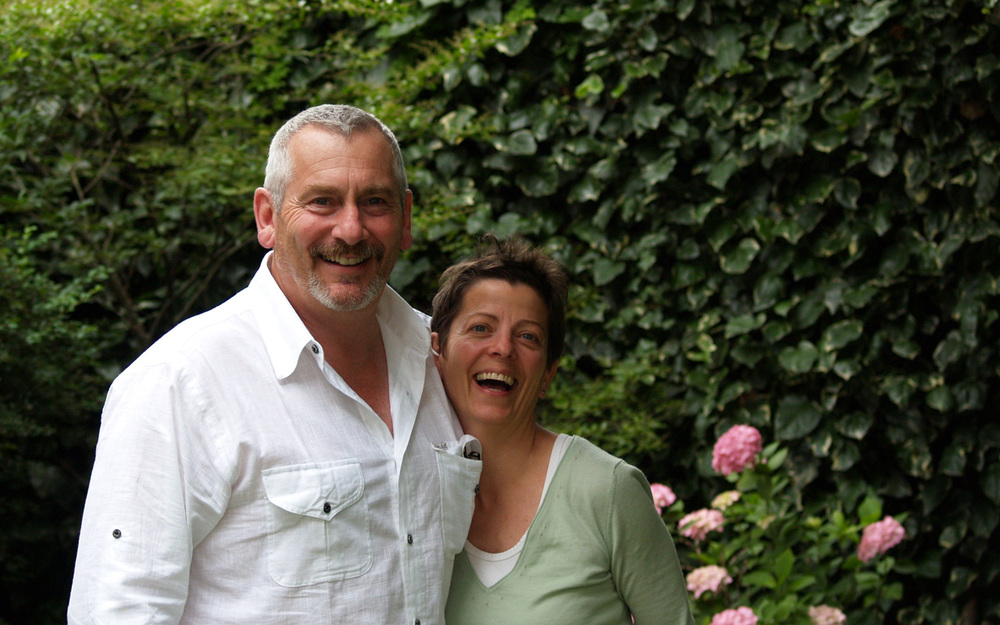
Tony and Bene Sparks, of Garston. PHOTO: Supplied.
Garston (population 100) is a busy convenience stop, sporting the Coffee Bomb takeaway van, the Garston Hunny Shop and Garston Stables, and the Garston Hotel, which is for sale.
The Garston Hunny Shop was founded by Tony and Bene Sparks, shortly after they moved to Garston in 2003 and Mrs Sparks decided to take up beekeeping.
Over the years, they have built up successful roadside importing and exporting businesses.
Advertisement
Advertise on the Southland App
Mrs Sparks exports honey products and cosmetics under the label Abelha (Portuguese for bees), while her husband imports furniture from France and Northern India for their furniture shop, the Garston Stables.
The couple said their future depends on the borders reopening, though it's not certain when that will be.
“We usually spend two months a year in Europe and I spend anything up to a month in Rajistan. I got back a week before [the March 2020] lockdown and I had sourced enough for two or three containers. Two arrived about two weeks ago and I have another container and a half ready to go. So we are going to be okay. Hopefully we will be travelling again soon,” Mr Sparks said.
During Covid-19 lockdown, their healing manuka honey meant they could be an essential service, but they didn’t get many orders.
“It was a bit hard to survive. It was good to get the wage subsidy because I don’t think we would have be able to do anything,” Mrs Sparks said.
She is heartened that since lock down was lifted, travelling Kiwis are stopping at the shops.
“Kiwis have been supportive, always wanting to buy a pot of honey or cosmetics. They have been really good, amazing actually," Mrs Sparks said.
She employs two locals and wants to recruit a third part timer, preferably a local, but there are not many job seekers in Garston.
“All the people I get are people with a working visa."
Advertisement
Advertise on the Southland App
Mr Sparks said having several prongs to business was more important than ever.
“That dead cat bounce issue is always in the back of my mind, particularly with furniture. As the economy grinds to a halt, people will not be buying furniture. If they lose their jobs they are not going to buying furniture."
The Sparks have been focusing on online business and marketing and recently began a lavender planting project.
“We will still be, I am imagining, 40% down. I will be happy if that’s all it is. If it doesn’t go any worse than that, we will be okay. We will just have to get much better at what we do,” Mr Sparks said.
“I love it here . . . The benefits of being in a small town, all the money stays in your pocket, what little there is. There’s less stress, it is just fun. I never went into business because I thought it would make me a lot of money. I went into business because I love what I was doing . . . I never retrench. I just go forward 10 thousand miles an hour and if I crash and burn, as has happened for time to time, you just pick yourself up, dust yourself up and go again,” he said.
ATHOL
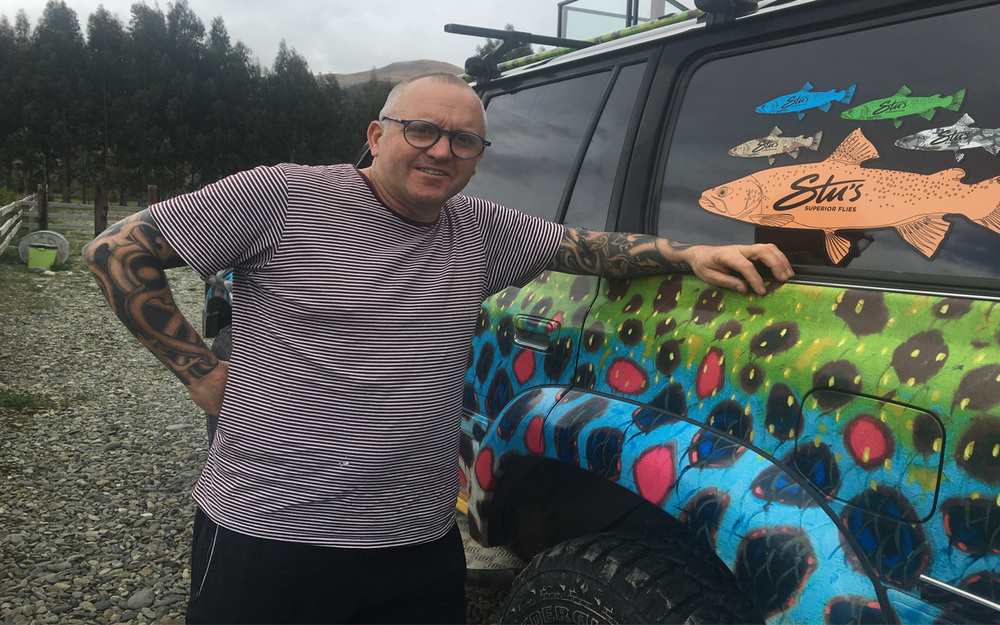
Stu Tripney has multiple strings to his bow but is feeling a bit stressed about the future. PHOTO: Marjorie Cook
Fishing guide Stu Tripney came to New Zealand from Scotland 20-odd years ago and about 15 years ago moved to Athol, where he runs his New Zealand Fly Fishing School, writes books, designs flies, guides, and teaches fly fishing.
Mr Tripney felt uncertain about the looming summer season, not the least because he’s recently had a hip operation and has sore knees.
Covid-19 adds another complexity. If the borders reopen, he’s hoping his regular Australian clients will decide to return.
He’s also hoping that being a local, Kiwis will want a local guide.
But fishing guides from all over the country and Australia come to guide anglers in Southland, he said.
“There is a little bit of competition for the water. I think when you begin guiding, you feel a little bit let down, but now I just don’t care. There is so much good water, and I am a local . . . There won’t be any [overseas] competition all this year, only Kiwis. But basically, I’ve lost all my business. So I am bit stressed. It is not looking good,” Mr Tripney said.
Advertisement
Advertise on the Southland App
But "I hope" is his repeated mantra. He’s looking at teaching, working with kids, writing, his art, fly tying, and private guiding – anything he can do to get by. Multi-tasking is not unusual for him. It is how he has got by in previous years.
Mr Tripney is picking the economy could suffer from the loss of international anglers, whose presence is not often noticed, despite spending money on holiday homes, food, accommodation and services in many small towns.
“There will be great fishing for New Zealanders [if the borders stay closed]. And if the border opens during this fishing season, there will be deluge of people desperate to go fishing here, especially from Australia. From what I gather, from Australia, it will be like a mass exodus,” Mr Tripney said
LUMSDEN
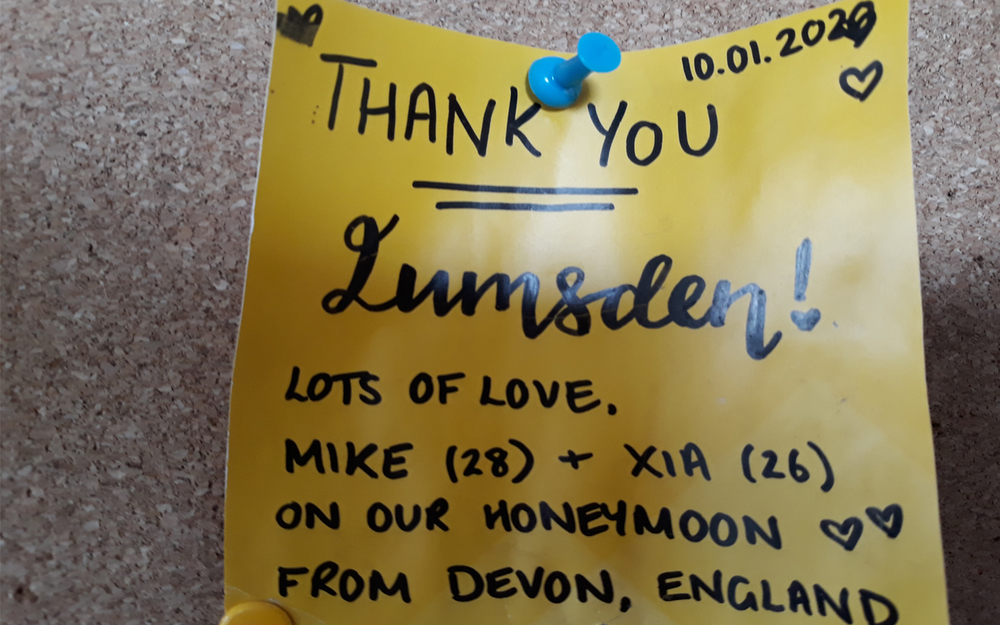
Freedom campers love Lumsden. PHOTO: Marjorie Cook
Lumsden’s historic railway station sports a small noticeboard above a kitchen sink.
You might expect them to say “babysitter available” or “has anybody seen my cat” but these notices love letters to Lumsden, decorated with hearts and smiley faces.
But since New Zealand shut out travellers in March, there’s been no more guys from Vermont on fishing trips; no more Germans, Finns and Argentinians grateful for a park and a clean toilet.
Lumsden businessman and Southland district councillor Rob Scott says Kiwis have been travelling in campers as if it were their patriotic duty but not freedom camping in big numbers.
Kiwis were just as generous spenders as international counterparts, but there were just not so many of them, he said.
“We are getting about 10 a night at the moment. But before Covid, around this time, we would have been looking at 50 to 60 vehicles a night, that’s in summer, during the peak season,” Mr Scott said.
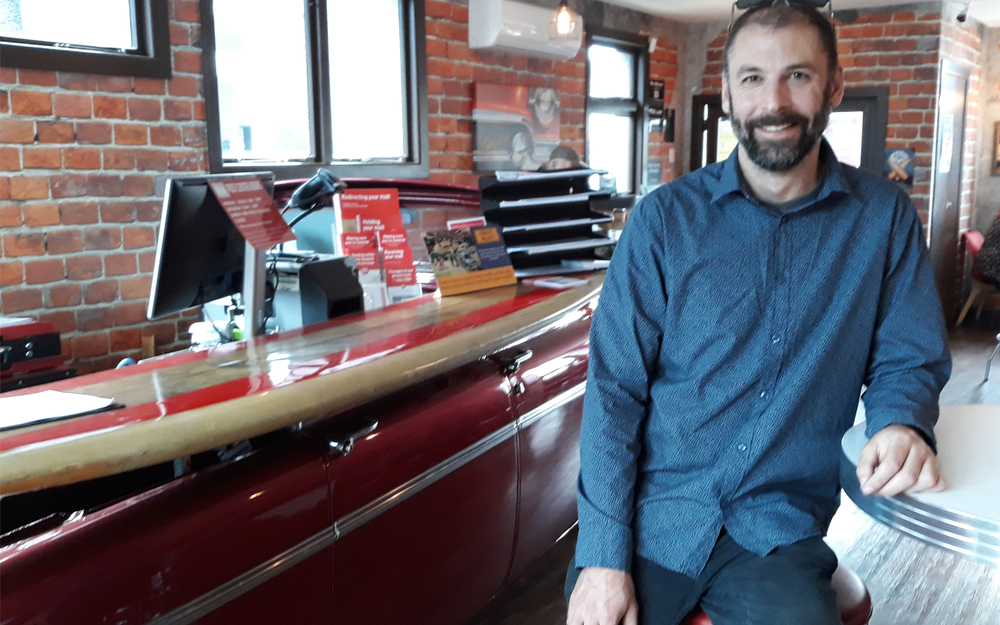
Southland district councillor Rob Scott at Route 6 Cafe. PHOTO: Marjorie Cook
Mr Scott and his wife Jane, established the Route 6 Café in Lumsden in 2015, and rejigged it after lock down to include a gift shop.
“When we came out of lock down, we fully didn’t know what to expect. But people are still about, and spending as much money as they can,’’ he said.
Mr Scott says he is “cautiously optimistic’’ Lumsden (population 500) will weather the downturn but does not expect a full picture until Covid-19’s one-year anniversary in March 2021.
He was taking heart that agriculture was still standing.
The extra good news was that Lumsden, which never really suffered from bad internet connections anyway, would be getting fibre soon, making it a good place to work from home, Mr Scott said.
Advertisement
Advertise on the Southland App
While Lumsden was still in survival mode and working out the new normal, it was future proofed to some extent by the transport network, Mr Scott said.
The town sits at the junction of roads to Gore, Mossburn, Te Anau, Invercargill and Queenstown, and sports several businesses including a Four Square, butcher, several cafes, a pharmacy, a hotel and a pub, vets and more.
Many houses are holiday homes, several owned by Australian anglers who visit each year to fish Southland’s famous waters.
“It will be interesting to see how things will go this year without the Aussies,” Mr Scott said.
“It’s been hard, not knowing what to expect. Now that summer is here, you just don’t know. We are cautiously optimistic but we are just not sure. We have so much to offer. People don’t realise how good it actually is here.’’
MOSSBURN
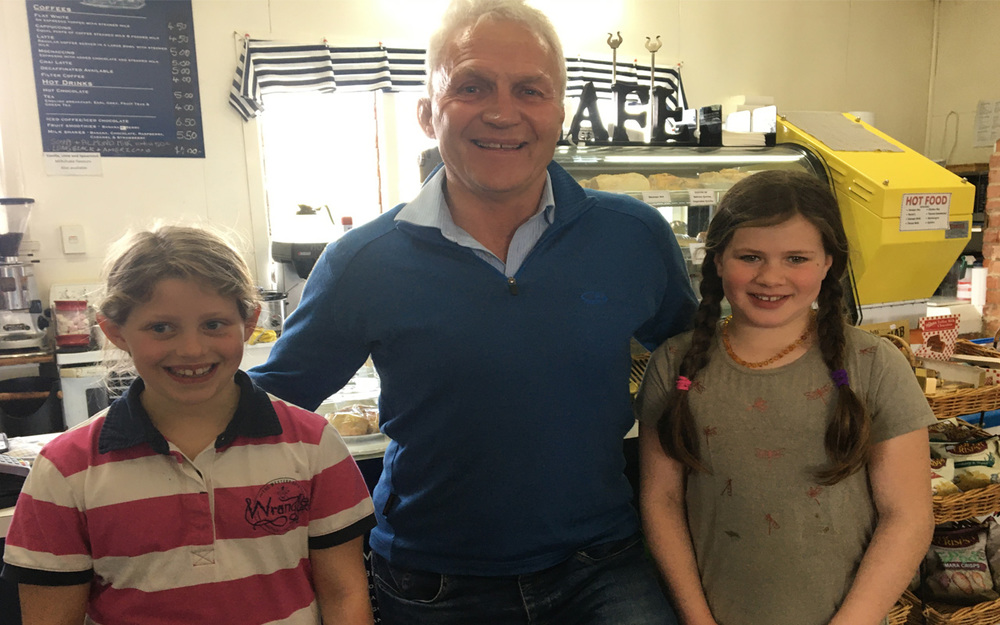
Southland farmer John Douglas with Bracken Hall "assistants" Georgia Taylor, 9, and Victoria Vande-Sandt, also 9. PHOTO: Marjorie Cook
I met another Southland district councillor, farmer John Douglas, at Bracken Hall in Mossburn (population 210).
The coffee and gift store houses a cornucopia of tourist mementos and home decorating items. It was for sale.
Mr Douglas said the "Kiwi can-do mindset" meant things were business as usual.
Northern Southland Transport has a yard, there’s a primary school, accommodation providers, Farmlands, Mossburn Motors, cafes, an hotel, vets, and more.
The farming community was holding the front line and supporting local businesses, backed by domestic visitors, Mr Douglas said.
“That’s a theme we’ve seen throughout Northern Southland,” he said.
Advertisement
Advertise on the Southland App
An decades-old advertising jingle “Don’t leave home until you have seen the country” resonates with him right now.
“I think that’s invoking patriotic spirit. I think people are saying, “I want to do it for myself but I also want to do it for the country”,” Mr Douglas said.
Covid-19 was just one challenge faced by farmers. There’s new freshwater regulations, winter grazing issues, the weather, bovine tuberculosis and more, he said.
With farmers feeling very much responsible for the nation's economic recovery, the Ag Proud lobby group was working to turn around perceptions of farming being undervalued, building relationships between town and country, and promoting mental wellness, he said.
Advertisement
Advertise on the Southland App
After two periods of negative gross domestic product, officially New Zealand is in a recession. But Mr Douglas said it didn't feel like it because interest rates are low, housing prices are high, and there were still jobs available – although for some, retraining may be required.
Farmers would and could help New Zealand out of the mire, he said.
“Tourism will not be able to do that for quite some time.”
“A lot of the affects have been cushioned by the wages subsidy. At the moment it is feeling like a Clayton’s bounce. The real one might not hit until next year. We have to be prepared for that. We cannot believe the recession is short lived and it is over.”
ACCOMMODATION
AG | TRADES & SUPPLIES
